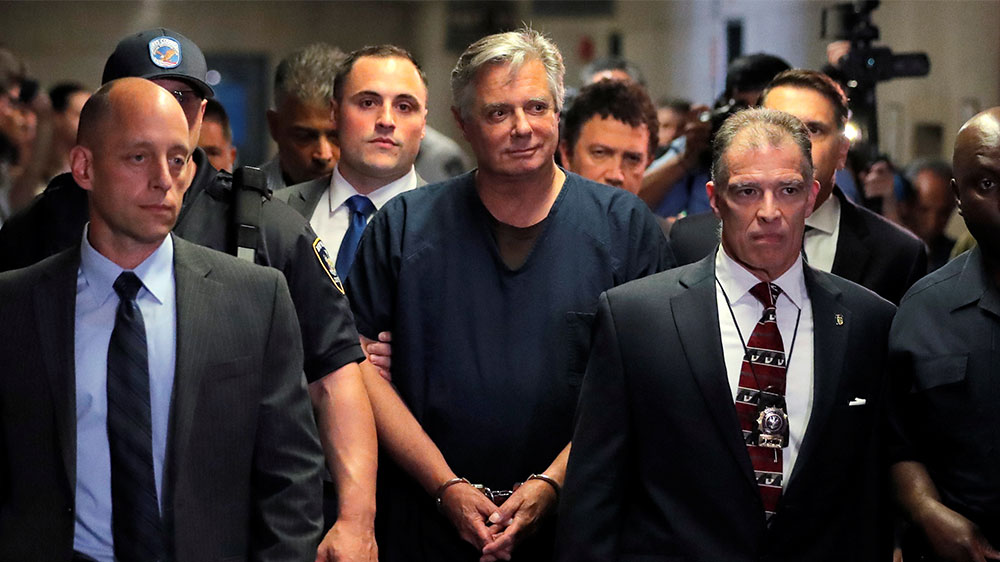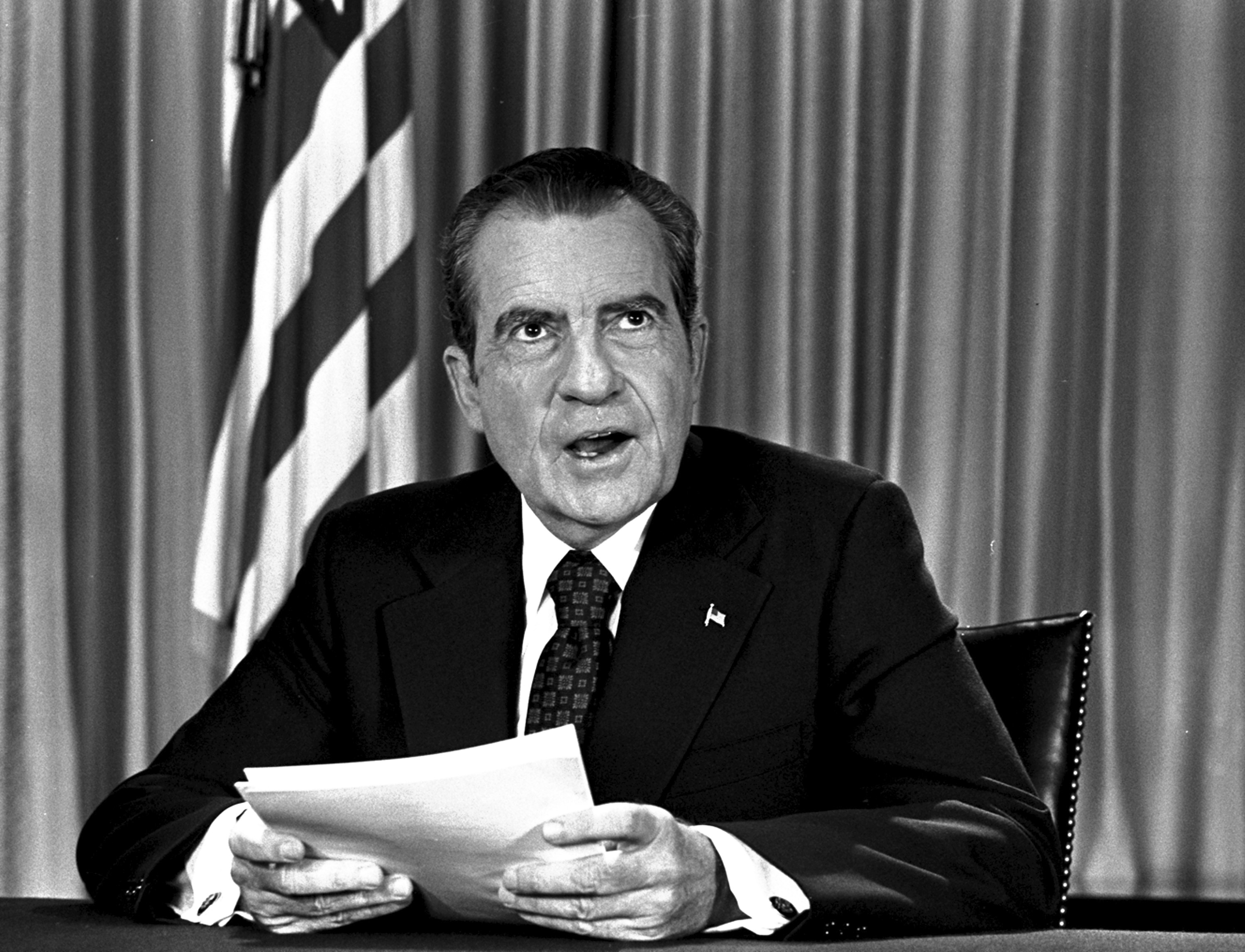
President Donald Trump began his second term by issuing “full, complete and unconditional” pardons to about 1,500 individuals involved in the January 6, 2021, attack on the United States Capitol.
He also commuted the sentences of 14 Proud Boys and Oath Keepers members who were convicted or charged with seditious conspiracy related to the violence.
The next day, Trump announced he had pardoned Ross Ulbricht, the founder of Silk Road, a dark web marketplace, who was jailed in connection with the sale of illegal drugs on the platform.
So how do presidents compare in the number of clemencies they have granted? Al Jazeera visualises presidential pardons in modern history, including some of the most controversial:

What is a presidential pardon?
Article II of the US Constitution grants a sitting president the power to forgive individuals for federal crimes, releasing them from further punishment or other legal consequences. However, it does not apply to impeachments.
Pardons are permanent once issued. A president cannot overturn or revoke a pardon that has been issued by a previous president.
A pardon may be issued before formal charges and after convictions. However, it cannot apply to future crimes that someone has not yet committed.
There are different acts of clemency, such as:
- Pardons – granting full clemency for a conviction
- Commutations – reducing a sentence to a lesser one
- Reprieves – delaying punishment
- Remissions – reducing the effect of a sentence without changing its nature
- Amnesties – granting a pardon to cover an entire group of individuals
Which president has granted the most pardons?
The first presidential pardon was issued by George Washington in 1795 to leaders of the Whiskey Rebellion, a violent tax protest.
In more modern history, 14 US presidents since 1945 have together issued more than 9,000 presidential pardons and 6,500 commutations.
In this 80-year period, Harry Truman, who served as president from 1945 to 1953, issued the most pardons – 1,913 – followed by Trump, who has issued at least 1,644 in both his terms so far. Dwight Eisenhower (1953-1961) issued the third most pardons at 1,110.
Joe Biden issued the highest number of commutations at 4,169, followed by Barack Obama at 1,715. Other presidents since 1945 trail far behind Obama and Biden with Lyndon Johnson issuing the third most during his 1963-69 term when he approved 226 commutations.

Trump compared with Biden
In his four years in office (2021-2025), Biden granted at least 80 pardons and 4,169 commutations. In comparison, Trump granted 144 pardons and 94 commutations during his first term (2017-2021).
While Trump’s second term is just a few days old, he has already made a sweeping 1,500 pardons and more than a dozen commutations.
Trump has pardoned people who have had personal or political connections to him, including his supporters. In his first term, this included individuals implicated in the Robert Mueller special counsel investigation, which examined Russian interference in the 2016 US election, ties between Trump associates and Russian officials, and potential obstruction of justice by Trump and his associates.
Those convicted included Paul Manafort, Trump’s campaign chairman; Michael Flynn, his former national security adviser; Roger Stone, political adviser; and George Papadopoulos, campaign adviser.

Trump granted pardons and commutations to several of those implicated. Papadopoulos was pardoned in 2018 and Flynn in November 2020. Stone’s sentence was commuted in July 2020, and he granted a full pardon in December 2020 along with Manafort.
In his final hours in office in 2021, Trump pardoned Steve Bannon, who was charged with fraud related to a fundraising campaign for Trump’s US-Mexico border wall.
Trump has also granted clemency to rappers Lil Wayne and Kodak Black. The former was found guilty of carrying a gun on his private jet in December 2019 and received a pardon. Black was sentenced to four years in prison in 2019 for making false statements about carrying a gun. His sentence was later commuted.

Many of Biden’s pardons have been for nonviolent drug offenders, including almost 2,500 on Friday – the most in a single day, except for Jimmy Carter. He has also pardoned several members of his family, saying the measures were to protect them from politically motivated investigations by the Trump administration.
On his final day as president, Biden pardoned Dr Anthony Fauci, the former director of the National Institute of Allergy and Infectious Diseases and a prominent figure during the COVID-19 pandemic. He was widely criticised by political opponents, including Trump, for his stance on the outbreak. Biden said Fauci’s pardon was also meant to protect him from potential prosecution under the Trump administration.
Biden also commuted the sentence of Native American activist Leonard Peltier, who has spent nearly half a century behind bars after being imprisoned in 1975 for killing two FBI agents.

Controversial presidential pardons
Below are some of the most controversial acts of clemency granted by US presidents over the past 50 years:
1974: Gerald Ford pardons Richard Nixon
On September 8, 1974, President Gerald Ford pardoned former President Richard Nixon for any crimes committed during his presidency, in particular those related to the Watergate scandal.
Ford considered it a step necessary to move the country beyond Watergate; however, the pardon is cited as a key reason why Ford lost the 1976 election. Many felt that the pardon continued the Watergate cover-up by preventing the possible indictment of the former president, who had resigned before he could be impeached.

1977: Jimmy Carter pardons Vietnam War draft evaders
When Jimmy Carter was inaugurated in 1977, he pardoned those who had evaded the Vietnam War draft on his first day in office, less than two years after the end of the war.
With public sentiment running against the Vietnam War, many young men tried to avoid the draft. The pardon faced criticism from veterans and conservative politicians who had served in Vietnam while others such as the American Veterans Committee praised the order but said it should have included deserters too.

2017: Barack Obama commutes Chelsea Manning’s sentence
Chelsea Manning, an army intelligence analyst, was convicted in 2010 of leaking classified government documents to WikiLeaks, which revealed American military and diplomatic activities across the world. Manning was serving a 35-year sentence, but it was commuted after seven years by Obama.

Pardoning family members – Clinton, Trump and Biden
On his last day in office in 2001, Bill Clinton pardoned his half-brother, Roger Clinton Jr, who had pleaded guilty to conspiracy to distribute cocaine after being caught trying to sell it to an undercover police officer in the 1980s. Clinton’s pardon cleared Roger’s criminal record.
In 2020, Trump pardoned his son-in-law’s father, Charles Kushner, who was serving two terms in prison for tax evasion.
In 2024, Biden pardoned his son Hunter despite previously saying he wouldn’t. Hunter was facing sentencing in two criminal cases. In September, he pleaded guilty to tax evasion and in June was found guilty of illegal drug use and possession of a gun. He became the first child of a sitting president to be convicted of a crime.








